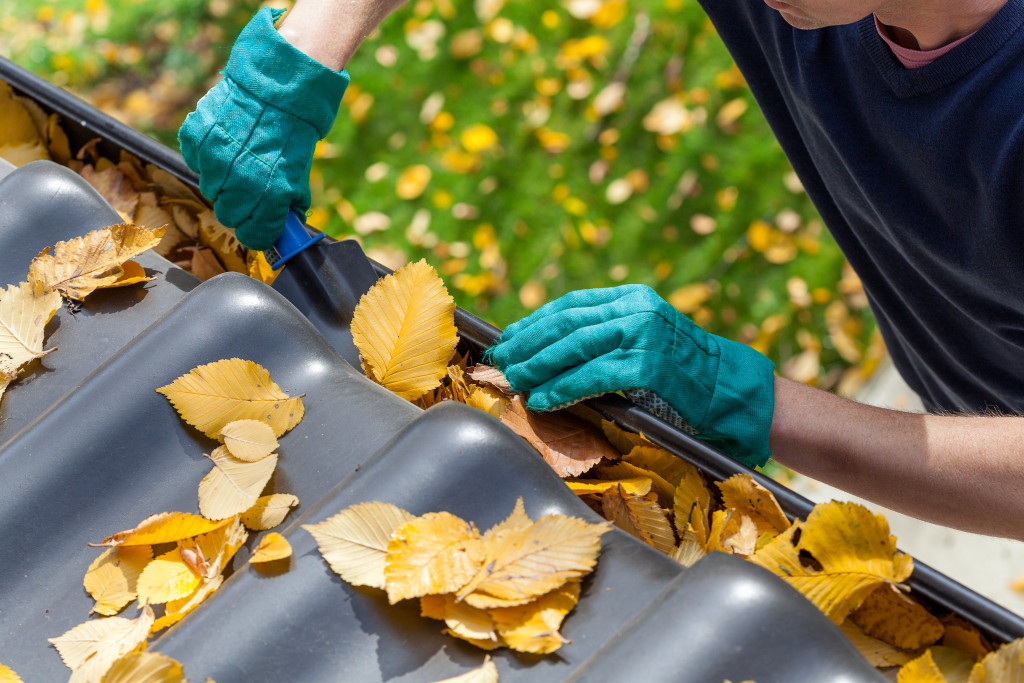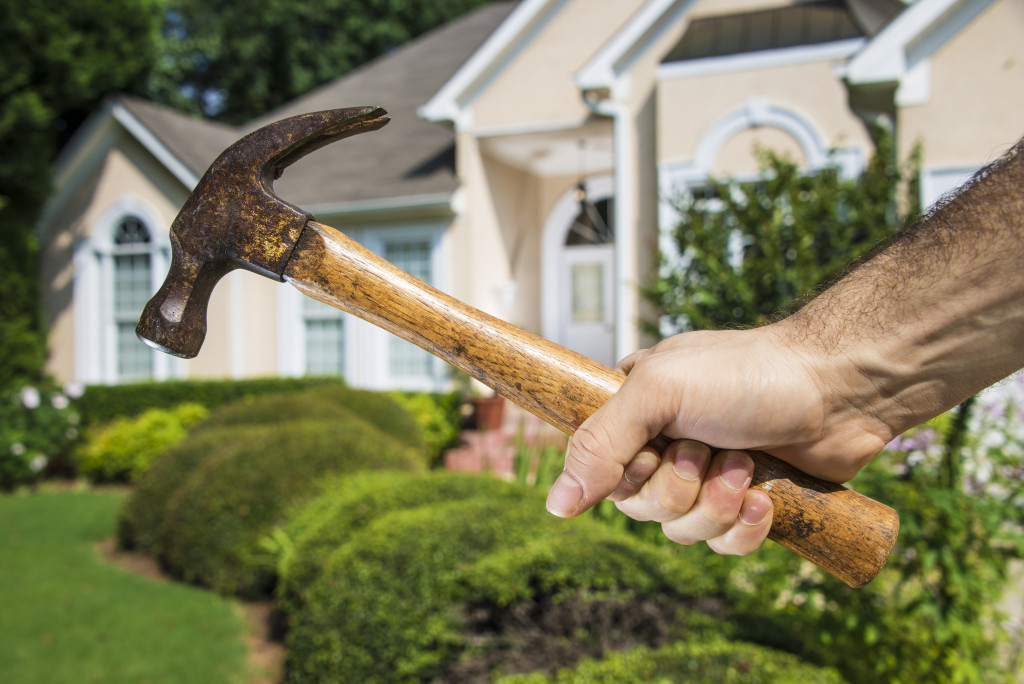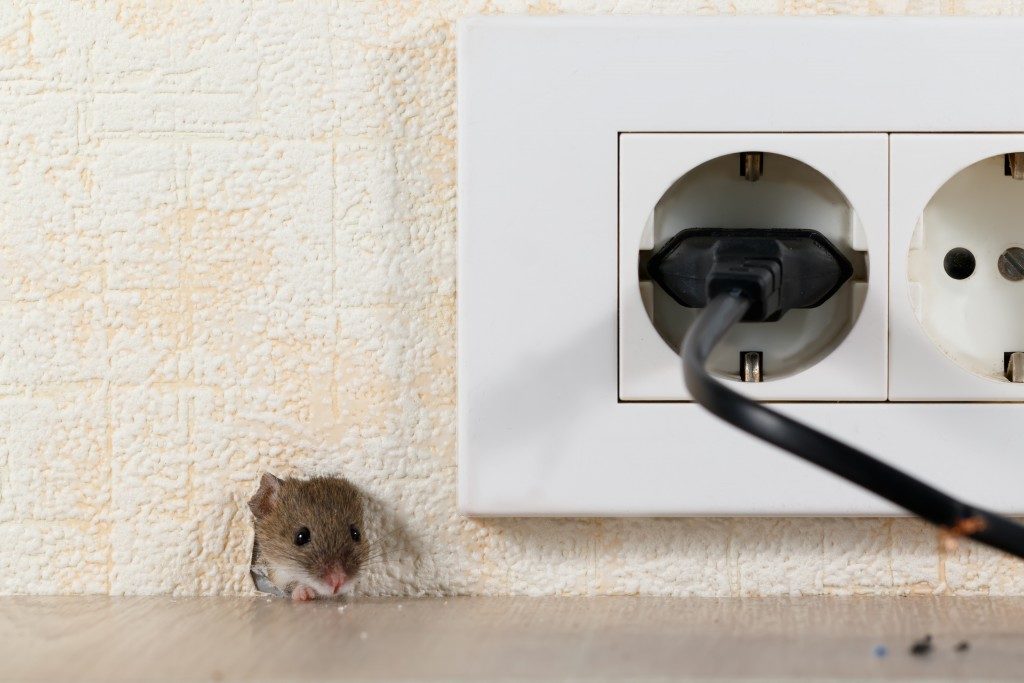- DIY projects can help save on labor costs, but complex repairs should be left to professionals.
- Prioritize repairs, addressing urgent issues like roof damage, structural problems, HVAC, and plumbing first.
- Before embarking on significant repairs, compare prices from different contractors and seek discounts on materials.
- Regular maintenance and inspections can prevent major issues, helping to reduce overall repair costs.
- Investing in energy-efficient appliances reduces utility bills, contributing to long-term savings.
Owning a house, especially one that’s old, comes with its share of joys and headaches. One of the biggest expenses homeowners face is repairs and maintenance. As homes age, repairs become a part of everyday life. But the good news is that you don’t have to break the bank to keep your home in good shape. This blog post will explore tips on saving money when repairing an older house.
DIY:
When you’re trying to save money on repairs, you should first consider the DIY route. It’s a great way to save money on labor costs. You can easily fix minor issues like fixing a leaky faucet, unclogging a drain, or painting the walls yourself. Many online resources can help you diagnose the problem and guide you through the repair process.
But of course, some repairs should be left to the professionals, like replacing a water heater or wiring an electrical system. It’s best to consult with a professional for more complex repairs if in doubt. This can help you avoid mistakes that could cost you more in the long run.

Prioritize repairs:
When dealing with an older house, there are always repair needs. Prioritizing your repairs and fixing the most urgent items is essential. Here are some of the most common issues to check:
Roofing
The roof is the first line of defense against the elements, so it should be checked regularly and repaired as soon as possible. Inspecting the roof for any signs of damage, such as missing tiles or cracked shingles, is important. If you spot any issues, contact professional roofers to fix them immediately.If your roof is already leaking, addressing it quickly is crucial—learn more about how to repair leaking metal roof to prevent further damage and protect your home’s integrity.
Structural problems
Structural issues can lead to serious safety hazards and should be addressed immediately. Look for signs of cracking in the foundation or walls, uneven floors, and standing water. Mold is another common issue that can develop in poorly maintained areas. It’s important to learn how to clean mold off window sills to prevent mold growth and avoid more significant health risks. If you’re dealing with creaking or sagging floors, you might need to know how to fix squeaky floors upstairs before the issue becomes worse. Most major structural problems, such as foundation or wall cracks, require professional help to avoid long-term damage.
HVAC system
The heating, ventilation, and air conditioning (HVAC) system is essential for keeping your home comfortable during the cold winter months and hot summer days. To keep the HVAC system in top shape, have it serviced regularly and check for any signs of wear and tear.
Plumbing system
The plumbing system is an essential part of your home that needs to be maintained and repaired regularly. Check the pipes for leaks or corrosion, inspect the faucets and shower heads for drips, and look out for clogs in the drains. If you find any issues, call a professional plumber to fix them promptly.
Shop around for the best price:
Before starting any major repairs, be sure to shop around for the best deals. Discounts and sales can be found at local hardware stores and online retailers like Amazon and eBay. Contact multiple contractors and get quotes to find the most affordable option. Don’t forget to look for deals on building materials, too. You can find used furniture or appliances from Habitat for Humanity for a fraction of the price of new ones.
But, most importantly, don’t sacrifice quality for price. Finding a contractor or material provider that offers high-quality products and services is important. This will ensure your repairs last longer and help avoid costly mistakes.

Maintenance is key
One of the best ways to save money on repairs in an older house is to stay ahead of maintenance. Regularly cleaning gutters, replacing air filters, and maintaining all your home’s systems can prevent significant issues from arising. You can also schedule annual home inspections to help reveal potential problems and offer suggestions for preventative maintenance to avoid future issues.
Use Energy-Efficient Appliances
Energy-efficient appliances are more expensive than their less energy-efficient counterparts but save money in the long run. They reduce your utility bills, making them a wise investment in the repair process. Consider investing in LED lights, programmable thermostats, and Energy-Star-rated appliances to reduce energy bills.
Owning an older home comes with its own challenges, but the tips above can help save you money regarding repairs and maintenance. Whether you’re an experienced handyman or not, prioritizing repairs, conducting regular maintenance, shopping around, using energy-efficient appliances, and doing small DIY tasks can save you money. With a little effort, you can keep your older home healthy and safe while staying within your budget.



